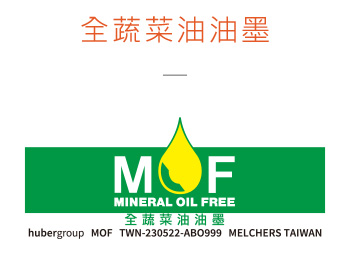In addition to professional technology, Li-Shang Printing is also very concerned about renewable resources, environmental protection, and corporate social responsibility issues, and is committed to promoting green packaging based on the 3R1D (Reduce, Reuse, Recycle and Degradable) principle. We not only have ISO 9001:2015 and Sedex international certifications, but also use environmentally friendly and non-toxic all-vegetable oil inks in printing inks. In 2016, we obtained FSC™ (Forest Stewardship Council) certification, becoming a company capable of producing FSC™ products; and later obtained ISO14064 and HACCP certifications to control carbon emissions and food safety, contributing to corporate social responsibility.

Full vegetable oil-based ink refers to ink that completely replaces traditional mineral oil with vegetable oil. Compared to so-called soybean oil ink, which contains only 20% soybean oil, full vegetable oil-based ink represents a significant advancement with greater environmental benefits. To evaluate whether an ink is environmentally friendly, certain standards should be considered: heavy metals, substances prohibited by various regulations, and VOCs (volatile organic compounds). While heavy metals in general ink formulations usually meet the standards, VOC emissions have a substantial impact on the environment.
According to reports published by European environmental groups, approximately 2% of VOCs (volatile organic compounds containing organic chemicals) in the atmosphere originate from the printing industry, with a significant proportion coming from traditional mineral oil-based inks. Early studies have already indicated that full vegetable oil-based inks can reduce VOC emissions, offering true safety and environmental protection, improved abrasion resistance and color saturation, and easier recyclability and de-inking of waste paper.